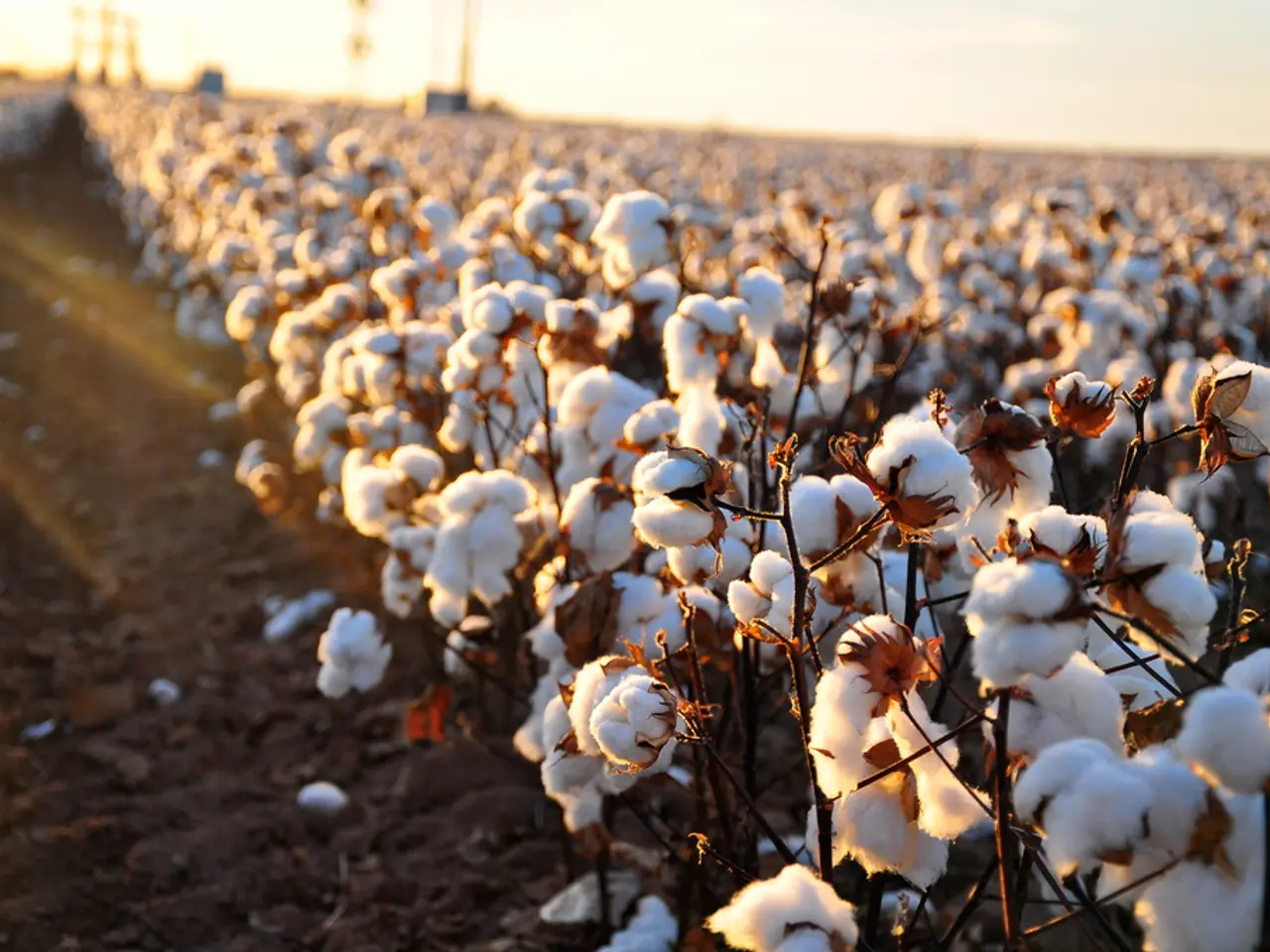Natural Material Clothing and Style
In the ever-evolving world of fashion, there's a growing movement towards sustainability and ethical practices. One such area that's gaining significant attention is organic cotton. Companies like Pact, MATE the Label, Eileen Fisher, and Stella McCartney, among others, are leading the charge in producing clothing that not only looks good but also does good for the environment and the people involved in its production.
Organic cotton is grown in regulated environments without the use of pesticides, hazardous chemicals, or synthetic fertilizers. This approach not only makes it safer for farmers but also results in significantly lower CO2 emissions compared to conventional farming practices. Moreover, organic cotton farming uses up to 60% less water, a crucial advantage in a world where water scarcity is becoming increasingly common.
The demand for organic apparel is on the rise, with an annual growth rate of 30%. Companies are turning to organic cotton for its eco-friendly properties and the fact that it's less harmful to the environment. Organic fabrics are made from natural fabrics using organic production methods throughout the entire production process.
However, it's important to note that the production of organic cotton does have its challenges. Due to the absence of synthetic inputs, yields are generally lower compared to conventional cotton. This can lead to higher production costs and, in some cases, higher prices for the end consumer.
Despite these challenges, the benefits of organic cotton far outweigh the drawbacks. Organic cotton supports better health and safety conditions for farmers by minimizing pesticide exposure, promotes fair wages and ethical working conditions, and contributes to environmental sustainability by reducing chemical pollution and carbon emissions.
Moreover, organic cotton plays a crucial role in both the food and apparel chains. It provides organic food for humans and animals, making it a key component in the pursuit of sustainable agriculture.
In addition to organic cotton, other eco-friendly materials are making their way into the fashion industry. For instance, recycled cotton, also known as regenerated cotton, is sourced from discarded fabrics and consumer products. Companies like Unmade are using technology to reduce waste by focusing on personalized customization.
Brands like MATE the Label and Mara Hoffman are known for their commitment to sustainability. They exclusively use natural and harmless components like low-impact dyes, certified organic cotton, and Tencel. MATE offers cosy classics in vibrant yet inviting colours, while Mara Hoffman's collection features numerous recycled materials, hemp, and organic cotton.
In conclusion, the shift towards organic cotton and other eco-friendly materials is a positive step towards a more sustainable fashion industry. While there are challenges, the benefits of organic cotton—from its lower water usage and absence of synthetic pesticides to its positive impact on farmer health and the environment—make it a worthwhile choice for both consumers and brands.
[1] Organic Trade Association. (2021). Organic Cotton. Retrieved from https://ota.com/market-data/organic-industry-overview/cotton
[2] Soil Association. (2021). Organic Cotton. Retrieved from https://www.soilassociation.org/organic-farming/what-is-organic/organic-cotton/
[3] Textile Exchange. (2021). Organic Cotton. Retrieved from https://textileexchange.org/standards/organic-cotton/
[4] National Geographic. (2019). The Dirty Secret Behind Your Denim. Retrieved from https://www.nationalgeographic.com/environment/2019/05/the-dirty-secret-behind-your-denim/
[5] World Wildlife Fund. (2021). Water Footprint of Cotton. Retrieved from https://www.worldwildlife.org/threads/water-footprint-of-cotton
- The increasing demand for organic cotton in the fashion industry is driven by its eco-friendly properties, as it is grown without pesticides, hazardous chemicals, or synthetic fertilizers, and uses less water compared to conventional farming practices.
- Beyond organic cotton, other eco-friendly materials are garnering attention in the fashion industry, such as recycled cotton and low-impact dyes, which help reduce waste and chemical pollution.
- Sustainable fashion brands like MATE the Label and Mara Hoffman are making a significant impact by exclusively using natural and harmless components in their clothing production, thus contributing to a more sustainable environment and promoting healthier farming practices.




